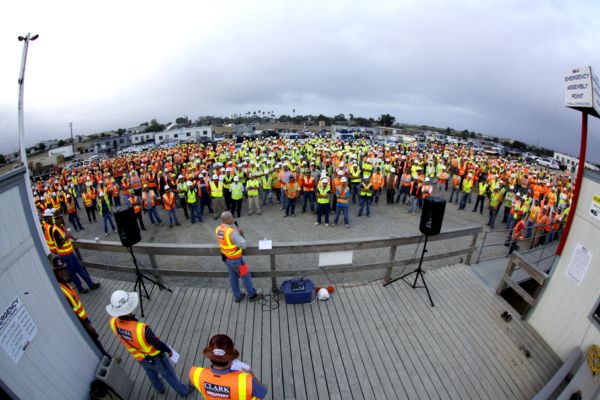Teamwork

TEAMWORK
A "team" consists of two or more individuals engaged in an activity to reach a common goal. When we think of "teamwork" it is usually in the context of completing a task or a job together.
Working together on the job has many benefits; physically helping each other distributes the work load, increases productivity and reduces the risk of injury.
Studies have shown that the effectiveness of a team increases with the social familiarity of the team members. The more you know and like someone the more you are able to trust and count on them. You get to know their skills, capabilities and weaknesses as they get to know yours.
The key to working together effectively and efficiently is to offset the weaknesses with each other's strengths. One person may be able to reach higher or lift more; another may be more agile or faster with numbers.
Whatever these differences may be; compatible individuals will invariably find ways to work together that are mutually beneficial.
The same is true in larger groups. A team that continues to work together will eventually develop an increased level of bonding. This can help team members avoid unnecessary conflicts since they have become well acquainted with each other through teamwork.
When we work together in larger groups on more complex jobs, we can overcome problems by sharing ideas from each individuals unique set of knowledge and experiences. The more knowledge we share, the more we gain.
As we work together to take on greater challenges; the more capable and productive we become.
Another positive benefit of teamwork is a healthy sense of competition among coworkers. This helps in several ways by keeping everyone on their game, easing tensions and creating a sense of community.
Especially in a camp work environment such as ours, teamwork goes a long way to getting through the day and enhancing our quality of working life.
